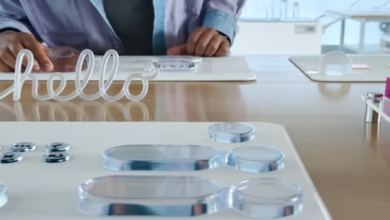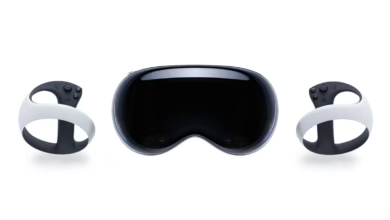Meta Expands XR Beyond Military Into Healthcare Innovation

▼ Summary
– Meta is partnering with Anduril to bring XR technology to military applications and expanding into the medical field, as indicated by new job listings.
– Meta, known for consumer VR/MR headsets like Quest, is exploring broader XR applications, including medical uses, beyond its existing education and enterprise efforts.
– Reality Labs is hiring regulatory specialists to secure approvals for medical devices, including wearables and AR glasses, in the US and globally.
– Meta’s AR glasses, like the Orion prototype, may be suited for medical use due to their real-world awareness and see-through lenses, benefiting patient interaction and surgical precision.
– Meta may also develop conversational AI and wrist-worn input devices for medical workers, though regulatory hurdles could delay market entry for years.
Meta is broadening the horizons of its extended reality (XR) technology beyond military applications, with healthcare emerging as the next frontier. Recent job postings reveal the company’s strategic push into medical innovation, signaling a significant expansion of its Reality Labs division into regulated healthcare markets.
While Meta’s consumer VR headsets like Quest dominate the entertainment and enterprise sectors, the company sees untapped potential in medicine. Newly advertised positions focus on navigating complex regulatory pathways for XR-based medical devices, suggesting Meta is preparing to introduce wearables and software tailored for healthcare professionals.
One listing seeks a regulatory affairs specialist to oversee approvals for “cutting-edge wearable technologies,” including augmented reality glasses and wrist-worn devices. Another role emphasizes collaboration with global regulatory bodies like the FDA and Notified Bodies to fast-track market access for Meta’s medical innovations. Though specifics remain under wraps, AR glasses like the Orion prototype appear well-suited for clinical environments, offering real-world visibility, a critical feature for procedures requiring unobstructed views or direct patient interaction.
Beyond hardware, Meta may leverage its advancements in conversational AI and gesture-controlled inputs to assist medical workflows. Imagine surgeons accessing real-time data via voice commands or nurses navigating records with subtle wrist movements. However, given the stringent validation processes in healthcare, these solutions could take years to materialize.
This pivot underscores Meta’s ambition to position XR as more than a gaming or communication tool, it’s betting on technology that could redefine patient care and surgical precision. The medical field’s rigorous standards will test Meta’s ability to deliver reliable, compliant products, but the potential rewards make this a venture worth watching.
(Source: RoadToVR)




